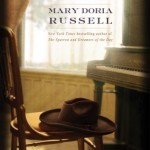And now libraries know that Random House is planning to use real silver for that lining.
The problem with Random House’s plan is that libraries don’t have all that much silver to give them in this era of shrinking budgets.
On February 2, Random House, the only one of the “Big 6” publishers to provide ebooks to libraries without restrictions, made an announcement that they would continue their generous policy, but that there would be a price hike to deal with some of the issues surrounding permanent access to ebooks.
Most libraries probably expected the price to rise somewhere in the neighborhood of 50%. Maybe double.
The hammer fell March 1. Hammer as in auction hammer. Or the hammer of doom.
Yesterday, Random House tripled the prices of their ebooks. You read that right. An ebook that cost a library $15 on Monday, costs $45 today. The libraries are reeling from the sticker shock.
But what will this mean?
Library budgets are not growing, they are flat or shrinking. Public libraries are creatures of local government, and tax revenues at the local government level are still sucky. Let’s be blunt here.
If the per-title price rises significantly, as it has just done. and the budget stays flat, what will happen? In most cases, libraries will buy fewer titles with the same dollars. Some will rearrange their budgets as much as they can, but very, very few will be able to triple their ebook budgets.
What gets purchased in this scenario? High-demand titles get purchased, so the hold queues get filled. Or at least stay tamed. John Grisham does not lose many library sales out of this.
What doesn’t get purchased? Mid-list authors and debut authors, because there is very little money left in the budget with which to take a chance. And the next John Grisham and Nora Roberts and James Patterson have to come from somewhere. Some of them will come from self-publication Cinderella stories like Amanda Hocking, but some will still come from the mid-list. If they get the chance.
Unlike V.C. Andrews, most authors do not write from beyond the grave. What are the publishers planning to do when the current crop of bestselling juggernauts decide to retire? The number one way that readers decide to purchase a book is because they liked the author’s last book. The trick seems to be to get people to read an author the first time. And with the demise of more and more bricks-and-mortar bookstores, that trick is getting harder all the time.
But protecting their authors is not what this move is about. Revenue numbers from 2011 are starting to come in from the major publishers, and the picture that emerges is very interesting. Sales of print are down, digital is up and profitability is up. Think about it for a minute. Digital books have no inventory, no print costs, and very low distribution costs. Most of the infrastructure to produce them already exists. For the publisher, they are almost pure profit.
Profitability is in no way a bad thing. It’s required for a business to remain in business. But let’s not pretend. Random House is charging more for their ebooks to libraries because Random House believes:
that pricing to libraries must account for the higher value of this institutional model, which permits e-books to be repeatedly circulated without limitation. The library e-book and the lending privileges it allows enables many more readers to enjoy that copy than a typical consumer copy. Therefore, Random House believes it has greater value, and should be priced accordingly.
In other words, because they can.









Did Random House not take into account the eBooks that may be purchased by someone who has borrowed one from the library? I know that if I find a book I like when I borrow it, I want to own it, and I am also more likely to start buying other books. It drives my husband batty, but I have stolen his Kindle and I’m filling my online library.
Unfortunately, how do you say you’re going to boycott Random House and their lousy business decision when that also means you may miss out on an amazing author? Seems like they get to have their cake and eat it too and that just stinks!
As a librarian I have been following the ebook saga with interest and it continues to be interesting… It seems we still have a long way to go. My favorite story is from a friend who said that he has been waiting so long for an ebook from his library that he could have gone in, checked the print copy one out, read it, and returned it in the time it took to get the ebook version. Granted it was a popular book, but the price hike is not going to help with access.
It’s going to take a while for the e-book business to be sorted out. In the meantime, we’ll have to bump along until availability and pricing get straightened out. Sigh.
No one is quite sure what Random House is taking into account. And everyone wonders. A lot.
At this point, the Harper Collins model of 26 checkouts and the library has to buy another copy actually looks sort of better, because the price goes down when the book switches to paperback in print.
Everyone’s mileage varies, of course.
But this just hurts libraries, authors who aren’t at the top of the bestseller heap, and readers.